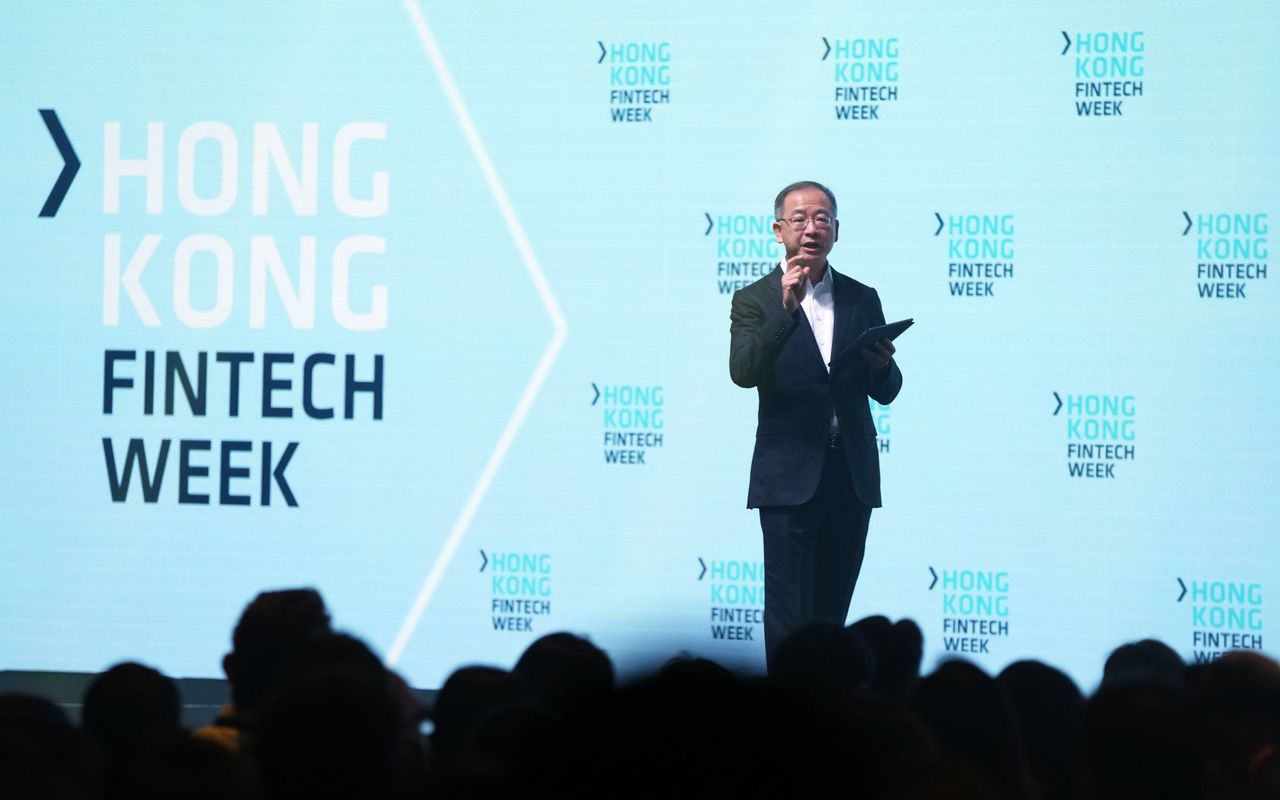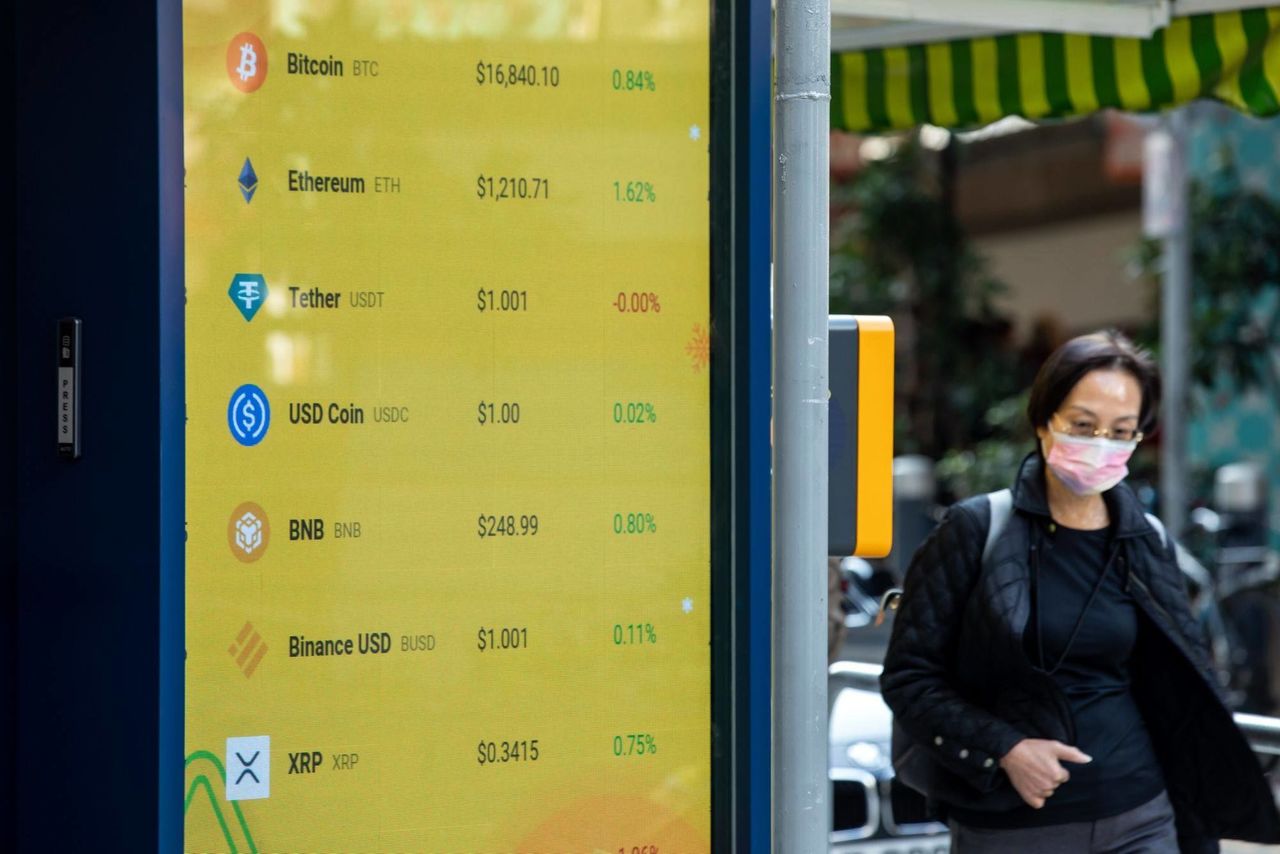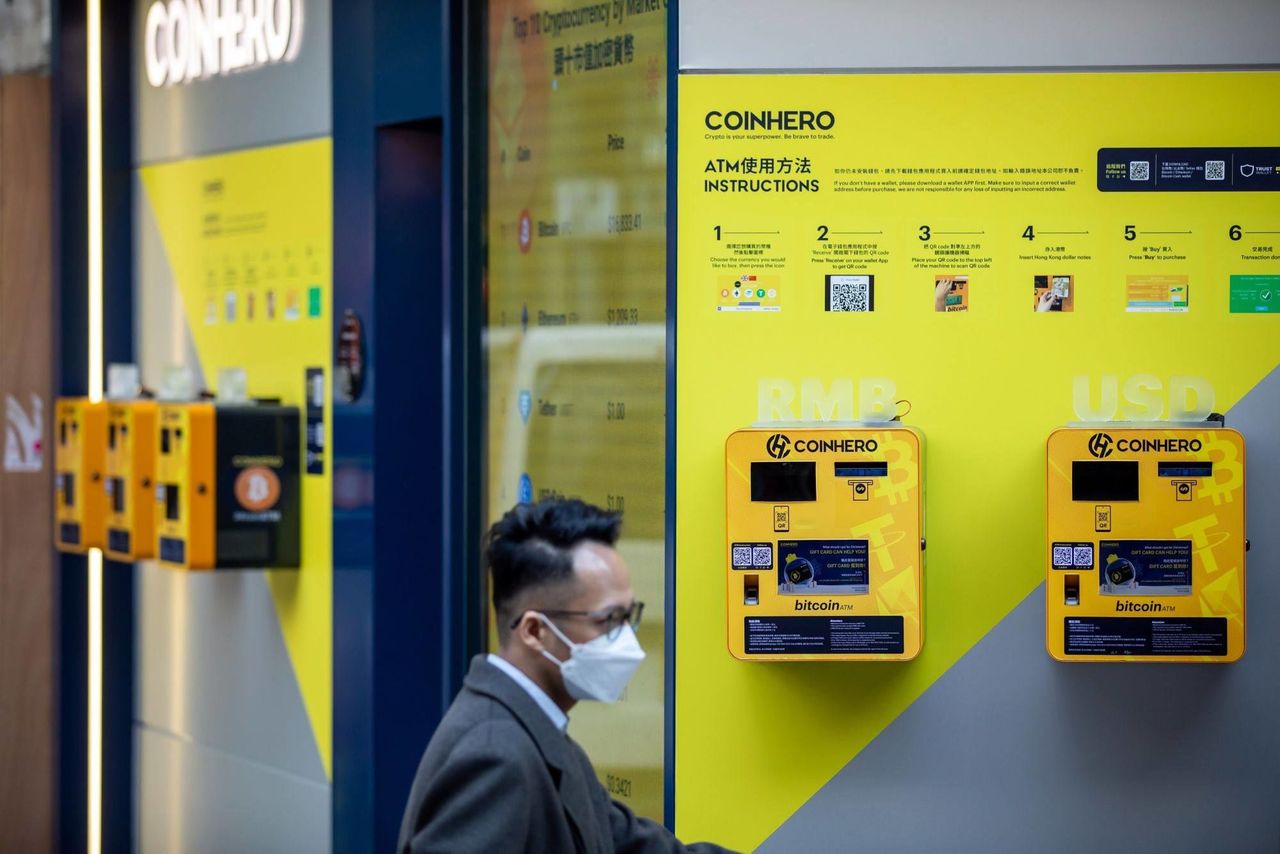Hong Kong News

Hong Kong’s crypto U-turn injects optimism into a tumultuous 2022
The year 2022 started off very differently from how it ended for Hong Kong’s crypto industry.
Commuters in the city’s business and financial hub of Central, returning to work on the first days of the new year, were greeted by giant billboards in prime advertising spots, featuring cartoon apes in Christmas hats promoting one of Hong Kong’s latest obsessions: non-fungible tokens (NFTs).
Cryptocurrency prices had soared to new heights after years of easy monetary policies. Countless NFT projects had sprung up across the city, and crypto enthusiasts, luxury watch collectors, retail investors and companies alike had been snapping up cartoon avatars, digital artworks and virtual land plots costing millions of dollars, hoping for either a quick windfall or long-term gains once virtual assets become mainstream.
 An ad set up by Hong Kong collectors of Degenerate Ape Academy, a
popular NFT project on Solana blockchain, in Central, Hong Kong in
January 2022.
An ad set up by Hong Kong collectors of Degenerate Ape Academy, a
popular NFT project on Solana blockchain, in Central, Hong Kong in
January 2022.
While venture investors in Hong Kong seem to have largely dodged the bullet, several cryptocurrency
trading firms with roots in the city ran into trouble.
Hundreds of retail investors in the city, said to be suffering losses totalling HK$98 million (US$11.5 million) from the recent collapse of local cryptocurrency exchange AAX, demanded regulatory actions, leading to the arrest of two executives last week.
“2022 has been a tumultuous year for digital assets globally,” said Joy Lam, a partner at law firm Baker McKenzie in Hong Kong. “We’ve seen several high-profile incidents that have rattled investor confidence and shone a searing light on aspects of the nascent industry which need to be addressed quickly and decisively.”
 Cryptocurrency entrepreneur and FTX founder Sam Bankman-Fried leaves a
federal courthouse after being released on bail following an arraignment
in New York last week.
Cryptocurrency entrepreneur and FTX founder Sam Bankman-Fried leaves a
federal courthouse after being released on bail following an arraignment
in New York last week.
As governments around the world begin to tighten scrutiny over the crypto industry after the spate of scandals, Hong Kong authorities have embarked on a new campaign to boost the city’s virtual asset sector and restore its status as a crypto hub.
For months, Beijing’s strict ban on cryptocurrency trading on the mainland, along with the Hong Kong government’s stringent Covid-19 travel controls and ambiguous attitude towards cryptocurrencies, had increasingly frustrated the city’s industry players, who complained that talent and businesses had been driven away to rival markets including Singapore.
Then on October 31, during the city’s annual FinTech Week, the Hong Kong government unveiled a range of policy measures aimed at developing the virtual asset industry, including legalising retail participation with a new licensing regime and allowing exchange-traded funds (ETFs) with exposure to bitcoin futures.
Officials also stressed that “one country, two systems” means the city is free to explore fintech innovations.
 Chief executive of the Hong Kong Monetary Authority Eddie Yue Wai-man
delivers the opening keynote at Hong Kong FinTech Week 2022.
Chief executive of the Hong Kong Monetary Authority Eddie Yue Wai-man
delivers the opening keynote at Hong Kong FinTech Week 2022.
The move marked a major U-turn in the city government’s approach towards virtual assets, which until recently were only allowed to be traded by individuals with a portfolio of at least HK$8 million.
Soon after, Hong Kong’s Securities and Futures Commission (SFC) handed out its first new virtual asset trading operating licences in nearly two years, and approved the listing of the city’s first two ETFs for bitcoin and ether futures.
“The raft of approvals that we have seen from the SFC this year for new virtual assets related products and services, taken together with the SFC’s decision to allow some degree of retail investor access to virtual assets, are a game changer for virtual asset investors and businesses alike in Hong Kong because they expand access,” said Lam.
Hong Kong’s new regulatory framework is expected to draw crypto businesses from mainland China to the city next year, even as the abrupt meltdown of FTX came right on the heels of the Hong Kong government’s policy pivot, rattling investors.
 A screen showing the price of various cryptocurrencies against US Dollars in Hong Kong last week.
A screen showing the price of various cryptocurrencies against US Dollars in Hong Kong last week.
“As travel restrictions continue to ease and inbound and outbound travel return to pre-Covid levels, 2023 is set to be a bumper year for events and conferences in Hong Kong, further helped by more Chinese investors deploying funds into Web3 investments,” said Vivien Khoo, co-founder and chair of industry association Asia Crypto Alliance (ACA).
Some mainland Chinese financial institutions, strictly banned by Beijing from any involvement with cryptocurrency assets at home, are already considering launching related businesses in Hong Kong.
“Earlier this year, the Singapore government issued a series of policies to attract virtual asset and Web 3.0 providers,” said Kenneth Lai, founder of Hong Kong-based online payments firm Payment Asia. “But now we see more people coming back to Hong Kong, or setting up offices in Hong Kong as their tech or operation centre.”
In December, Hong Kong passed the Anti-Money Laundering and Counter-Terrorist Financing (Amendment) Bill 2022, which specifies that the licensing regime for virtual asset services will come into operation on June 1 next year, when the regulator may receive an influx or applications.
 Bitcoin ATMs in Hong Kong.
Bitcoin ATMs in Hong Kong.
“I expect that in 2023, Hong Kong will make up a lot of ground that has been lost in recent years in the battle to be crowned Asia’s digital assets hub,” said Baker McKenzie’s Lam.
She added that there is a sense of urgency among many of her clients, who are racing to ensure that their businesses are established and appropriately licensed before the next bull market starts, when they expect significantly greater investor demand.
In the short term, however, cryptocurrency companies and investors may still need to brace for further fallout from the FTX fiasco, according to ACA’s Khoo.
“We will see continued consolidation in the market with more companies, with either direct or indirect crypto exposure, under stress and defaulting, as well as closure of funds,” said Khoo. “And the contagion effect will continue well into the first half of 2023.”











